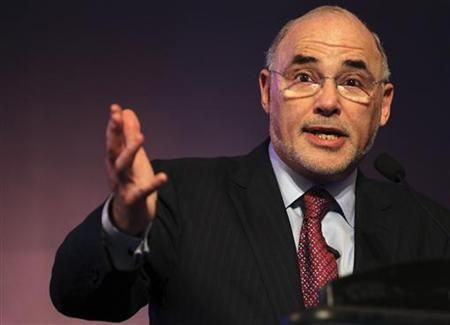First Yahoo, Now HP: Why are Technology Boards So Bad?

September has proved to be a tough month for technology boards of directors who seem to be foundering, and not leading their companies. The result may be that customers wonder who's designing the products.
First there was the Yahoo scenario, where the board of directors summarily fired CEO Carol Bartz -- among a handful of women tech CEOs -- on the telephone, with no succession plan and then had to hire Allen & Co. for strategic advice that could imply sale of the company.
Now there is the drama surrounding Hewlett-Packard, one of the world's most venerated companies, the subject of adoring coverage in In Search of Excellence, the 1982 management bestseller by Tom Peters and Robert Waterman.
If unconfirmed reports are true, HP CEO Leo Apotheker is being cashiered after only 51 weeks in the job at the Palo Alto, Calif., computer company. If he's removed, that would be the third ouster in six years.
Every board of directors should ask its CEO, 'What happens if you're run over by a truck?' a senior partner of one of the 10-largest law firms told IBTimes. There are a lot of tricky, delicate and sensitive considerations.
Apotheker, 58, was an unusual choice for HP, in part because he was born in Germany, educated in Israel and had a major software background. After years at Germany's SAP, he served less than a year as CEO after proposing to raise prices to better compete against Oracle.
Mark Hurd, HP's last CEO, is now an Oracle co-president.
HP's 2010 board of directors, much of which has been replaced, didn't know Apotheker very well. Reports suggest he wasn't even interviewed by the entire board. Not clear is why an outsider was hired for the third consecutive time at a company which had always had a succession plan and did well under two earlier CEOs, John A. Young and Lew Platt, who rose from the ranks.
Back in 1992, a near-bankrupt IBM accepted the resignation of CEO John Akers and CFO Frank Metz and hired an executive search firm rather than promote from within. It settled on Louis V. Gerstner, an MBA who was CEO of RJR Nabisco, who saved the company.
When he was picked, Gerstner admitted his lack of technology expertise but said that as a customer, at RJR and American Express, he understood what companies need technology for. When he stepped down in 2002, insider Samuel Palmisano succeeded him.
Palmisano is 60 now and for sure, IBM's board has a succession plan.
That's necessary in any company, especially technology. Back when Texas Instruments was in trouble, CEO Jerry Junkins helped restore financial and technology strength when he was named CEO in 1985. He suffered a heart attack inspecting a new factory in Germany in 1996 and was immediately succeeded by Tom Engibous, his deputy and another electrical engineer.
One might wonder why Yahoo and HP don't have these kinds of seamless transitions, especially because of their consumer interface.
Yahoo's board, chaired by retired advertising executive Roy Bostock, is devoid of prominent technology people save for Akamai president John Kenny.
HP's board includes Ann Livermore, for years HP's enterprise services EVP and one of the best-regarded computer executives. There's also Mosaic inventor Marc Andreesen, who made his pile at Netscape; Larry Babbio, a former Verizon Communications president; Sari Baldauf, a former EVP at Nokia; Rajiv Gupta, former CEO of Rohm & Haas and HP Chairman Ray Lane, former Oracle president.
Among all these smart people, as well as some other HP directors without technical backgrounds like Margaret (Meg) Whitman, the former eBay CEO, it's hard to believe HP is in such turmoil.
Selection of the CEO is one of the most important things for a board of directors to deal with, the senior lawyer told IB Times. It's truly a dramatic one-time event.
Especially at HP, where founders Bill Hewlett and David Packard created a culture governed by the HP way, which covered ways people and companies are expected to conduct themselves.
HP shares rose more than 10 percent Tuesday merely on the news Apotheker might go. On Wednesday, they opened down another 5 percent.
© Copyright IBTimes 2024. All rights reserved.






















